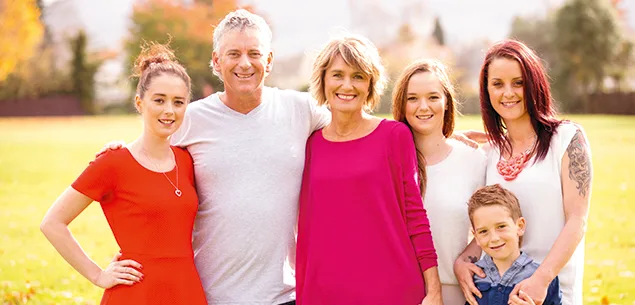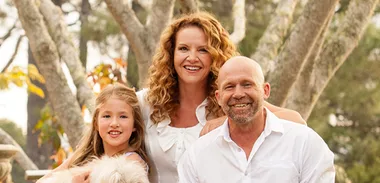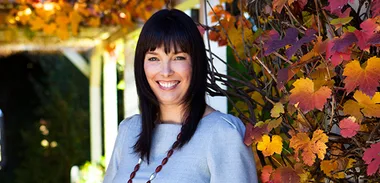There is one moment Louise Nicholas knows will be harder than any other when she watches the movie about the events that have defined her life.
It won’t be the scenes that depict her allegations of rape and sexual abuse by several police officers.
Instead, it will be seeing the emotional impact these terrible events have had on her family.
“That night Ross and I sat down and told our daughters what happened to me all those years ago, they’re now going to see it,” says Louise of the movie about her life, which is currently in production and set to screen on TVNZ later this year.
“Seeing how it affected them, that’s going to be a kick in the guts big time.”
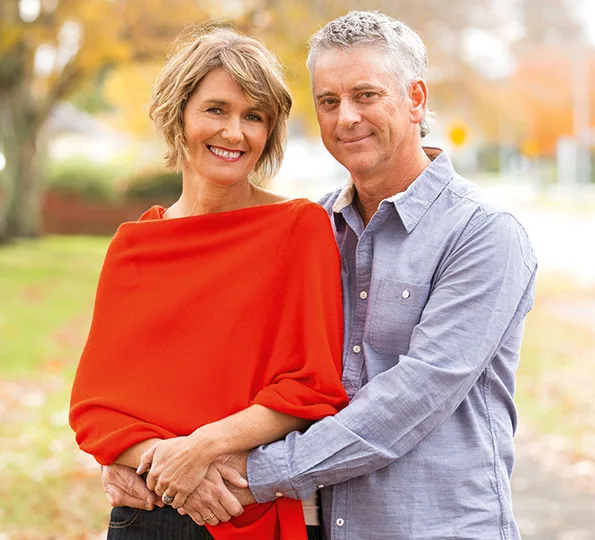
Louise has been married to her husband Ross for 26 years.
Speaking exclusively to the Weekly from her Rotorua home, Louise, now 46, sips slowly on her cup of tea. She talks quietly, but the fire in her eyes burns when she recalls the life events that she, her husband of 26 years Ross, and their three daughters, Jess (25), Kerri (23) and McKaela (20), live with every day.
Her youngest child Luke, now seven, was born just after three policemen were acquitted of raping Louise and understandably comprehends far less than his sisters.
The film dates back to the 1980s, when Louise was a young country girl living in Murupara, a small Bay of Plenty town.
Her struggle began one fateful day when she walked to work at the local dairy, stopping to speak to a friend of the family – a policeman – whose name is permanently suppressed.
He took her to the police station and, she says, raped her. He didn’t just do it once, but again and again.
Eventually, years later, other policemen, Clint Rickards, Bob Schollum and Brad Shipton, had sex with Louise too. They claim it was consensual, denying a total of 20 charges, and were acquitted in March 2006. However, Louise says it was anything but consensual.
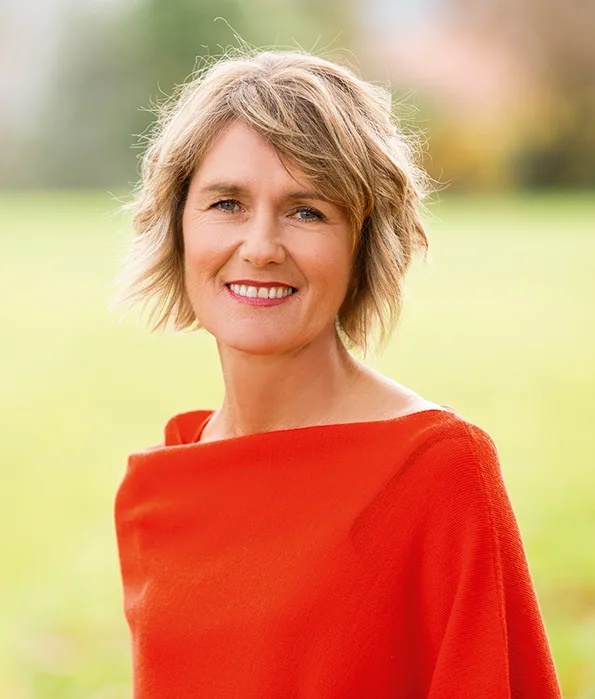
It took Louise almost 25 years to have the courage to tell her family her version of events.
It took her almost 25 years to have the courage to tell her family her version of events and it was then her legal fight began.
The case led to the opening of Operation Austin and one of the most controversial police inquiries in New Zealand history.
It divided the nation, brought thousands into the streets in protest, but also put Louise and her family under unimaginable scrutiny. In spite of that fact, Louise has never regretted her decision to come forward.
“I’ve helped so many other women,” she insists.
“Look at how far we’ve all come from 11 years ago when Phil Kitchin [the investigative journalist who uncovered the case] first knocked on our door. The crazy journey we’ve gone on since that day is mind-blowing.”
Although Rickards, Schollum and Shipton were all found not guilty of rape, Louise says she has found a way to put this nightmare behind her.
“Punishment comes in all forms,” she says, “and they’re judged every day.”
The back door bangs shut and Ross (49), a forestry worker, returns home from a day at work. Their relationship is as strong as it was when they wed more than two decades ago. Ross admits he’s a little hesitant about the publicity the film and a revised edition of the book Louise Nicholas: My Story, are bound to garner, but he knows it’s important.
“Everything had calmed down [since the court case] and now it will be off again,” Ross says.
Louise’s biography was a best-seller when it was first released in 2007. Co-written with Phil Kitchin, it tells her complex and sad tale, and the new imprint covers proceedings even more thoroughly.
In it, Phil and Louise delve into the dramatic events since her failed trial, including the imprisonment of former detective inspector John Dewar, who tried to cover up her complaints.
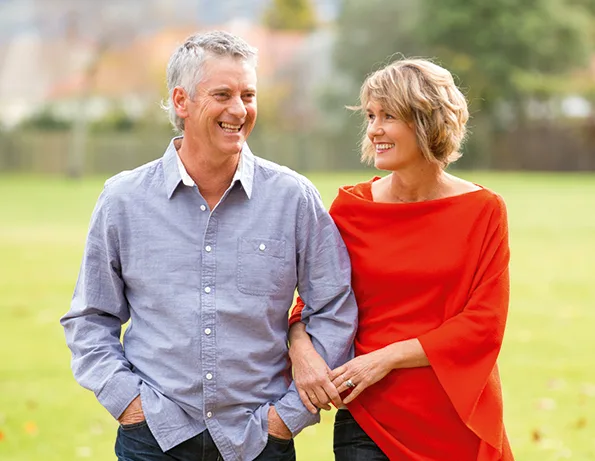
Ross admits he’s a little hesitant about the publicity the film and a revised edition of the book, are bound to garner, but he knows it’s important.
Despite the treatment Louise received by the police more than three decades ago, her feelings towards the force have come full circle. Today she works with them, teaching senior police officers how to work with rape victims.
She is also a National Sexual Violence Survivor Advocate with Rape Prevention Education; helping women, men and children throughout the country have the strength and courage to come forward about their abuse. Louise is often asked to speak on national and government advisory boards dealing with sexual violence.
Louise is unfazed about making headlines once again; she hopes the film and book will get people talking openly about abuse.
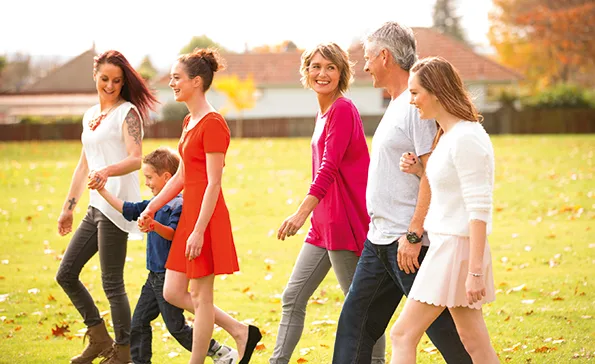
As well as being a wife and mother, Louise is also a National Sexual Violence Survivor Advocate with Rape Prevention Education.
“It’s not about me – it’s about the conversations that need to be had in our lounges so that what happens to many other people in New Zealand on a daily basis, stops,” she says.
“Sexual assault is a subject so personal that people don’t believe they can talk about it. Because rape and sexual abuse are crimes of silence, it’s about power and control. It can be easier just to shut up and say nothing and hope it’ll go away. The sad reality is, it doesn’t.”
A terrible example is one of the cases she is working on.
“This woman is 87 and her father raped her aged 10,” she says. “So much is taken from you. You go into this shell and go through life, whether it’s weeks, months or years, but there comes a time when it gets too much.”
Luke and his two little mates from down the road return to collect his bike. Louise steps into mum mode and tells him, “Quickly collect your things, then out, please.”
Clearly too young to realise why his mother is well-known, Louise knows the day will come when she will have to sit him down and tell him her story. Like her daughters, she hopes Luke will become an ambassador for his friends and family for her cause.
“The girls have shown such strength from the moment we told them. They are amazing ambassadors for their community and friends,” Louise says.
“Will we ever stop sexual violence? Probably not, but we’ll give it a bloody good go.”
Louise Nicholas: My Story, (Random House, $39.99). Available now.
